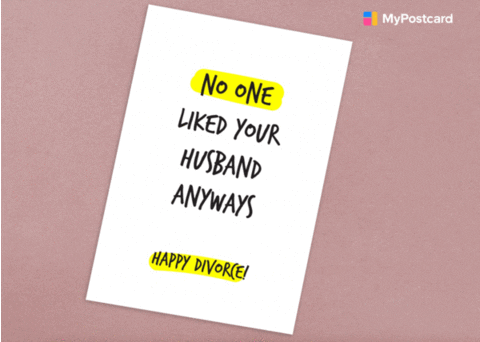More often than not, life takes unexpected turns. Women in their late 40's and 50's navigating the path of divorce frequently choose to stay single, which prompts us to ponder over this phenomenon. Why are so many mature, divorced women deciding to embark on this journey alone?
There are numerous factors involved directly or indirectly, influencing this decision. Some reasons might be as transparent as a glass pane, others might be more complex, hidden beneath layers and layers of personal experiences. Let’s endeavor to understand some key reasons.
“Being single does not mean being lonely, it's a transition where one discovers oneself. Facing life on your own terms, standing tall through storms, and enjoying tranquility, this is what being single truly encompasses for most of these women."
- Societal Influence: Society has transformed immensely over the decades, moving towards endorsing individual choice and personal growth.
- Intrinsic Satisfaction: Seizing the freedom to decorate one's own life and finding intrinsic happiness.
- Economic Independence: Most women in this age bracket are financially secure, allowing them to lead a comfortable life without the need for a partner.
The new-found singlehood may seem baffling to some, but trust us, it's a choice made consciously by these strong and independent women. As we look into this, remember, everyone has their unique path and their unique reasons influencing their life choices.
What are the common reasons cited by divorced women in their 40's-50's for choosing to remain single?
When it comes to women in their late 40's to 50's who are divorced, the decision to stay single derives from a variety of factors. It's not simply a matter of preferences or whims, but rather, a conscious choice driven by numerous life experiences and personal insights.
- Embracing Independence:
Post-divorce, many women discover the joy and empowerment that comes from living independently. It's a chance to make decisions without having to compromise or consider a partner's opinions. This renewed sense of autonomy often outweighs the desire to jump back into a committed relationship. - Concentration on Self-Care:
After going through the emotional turmoil of a divorce, many women prioritize self-care and healing. This might involve traveling, picking up new hobbies, or simply having more time for rest. For these women, being single allows them to fully engage in this process without distraction. - Focus on Personal Growth:
Being single offers a valuable space for personal development. Many women use this time to pursue educational opportunities, professional growth, or personal interests that might have been neglected during marriage. - Life With Less Drama:
Some women choose to remain single as a conscious choice to avoid the drama and complications that can come with relationships. These women might value the peace, quiet, and stability that a solitary lifestyle can offer. - Prioritizing Children and Family:
If children are involved, the focus often shifts to creating a stable, comfortable environment for them. Being single allows for more time and energy to be directed towards parenting and family-centric activities.
In essence, these women redefine what it means to lead a fulfilling life, discovering that happiness can be found outside the confines of a romantic relationship. Their reasons are deeply personal and vary from person to person, but the overarching theme is clear: the freedom and personal growth opportunities offered by a single life can be just as fulfilling as those found within a partnership.

What are the social, emotional, and financial benefits experienced by these women?
You may be wondering what the upsides of being single are in the wake of a divorce. These women, in their 40's-50's, often discover a broad range of benefits, both financial and emotional, and indeed social. Let's examine them close-up.
The Social Upsides
Socially, there's a newfound freedom that comes with being single. No longer needing to balance their social life with the wants and needs of a spouse, these women have more time for their friends, their family, their hobbies, and themselves. They have the freedom to explore new interests, travel, and generally live life on their own terms. It's all a process of rediscovery.
Emotional Benefits
On the emotional front, while divorce can be emotionally charged and challenging, the aftermath often leads to emotional growth. There's an opportunity for self-discovery, self-love, and self-improvement that becomes available once the dust settles. Many women find that being single allows them to refocus on their own emotional well-being, creating a more balanced and fulfilled life.
The Financial Aspect
The financial benefits are varied and can be substantial. There's the obvious – only one person's expenditures to worry about, less back-and-forth about financial decisions, and more control over personal finances. But there's also the potential for significant financial growth. Women often find that they have more freedom to make financial decisions that benefit themselves, be it launching a new business, investing in stocks, or saving for the retirement they envision. It's all about taking charge of your future differently.
All these factors combined offer a deep sense of empowerment and autonomy, which can lead to overall happiness and satisfaction. Of course, the experience can vary from person to person, but many divorced women do find this newfound singlehood liberating and enriching.
How does the trend of embracing singlehood among divorced women in this age group compare to other age groups?
Exploring how the trend of independent singlehood among divorced women in their late 40's-50's contrasts with other age groups provides illuminating insights. Age often brings about different views on independence, companionship, and personal development. We'll walk through three age brackets: women under 30, 30-40 years, and men in their 40's-50's for a thorough comparison.
Women Under 30:
Younger divorced women, often in their twenties, show a remarkably contrasting trend. A common theme here is a drive to establish a fresh start, which often includes seeking new relationships. This eagerness can be linked to various factors such as societal expectations, the desire for a family, or the fear of loneliness. It's also notable that younger women may not have achieved economic stability yet, resulting in an increased propensity to partner up.
Women between 30-40 years:
Women who get divorced in their thirties often show mixed trends towards singlehood. They're typically well-established on their career path and have more financial independence compared to younger women. Many start placing greater emphasis on personal growth and rediscovery. However, this age group still shows a considerable inclination toward finding new companions, albeit with more caution and discernment than their younger counterparts.
Men in their 40's-50's:
By comparing with the opposite gender in equivalent age brackets, one can better understand the distinct trends. Men in this range often bear a heavier financial burden post-divorce, resulting in a higher tendency to remarry or cohabitate, primarily for economic reasons. Additionally, the societal expectation of men leading less solitary lives also plays a part in encouraging a move away from singlehood.
As observed, the tendency towards singlehood among divorced women in their late 40's and 50's appears to manifest more prominently than in other subsections of the population. This trend can be linked back to increased financial stability, emotional maturity, and a shift in societal norms encouraging personal independence.
The future likely holds manifold pathways for all types of divorcees. Still, for many women in their late 40's and 50's, singlehood appears to be a liberating choice, offering them the autonomy and peace they crave.
What are the societal or cultural influences contributing to this trend?
There's a profound societal shift that has been gathering momentum over recent decades, helping shape the decisions of divorced women in their late 40s and 50s to remain single. We are living in a world that increasingly respects individualism and personal freedom. But what does this mean, and what are the factors contributing to this shift?
It's important to note that society as a whole is progressively moving away from the traditional notion of womanhood being intrinsically tied to marriage and motherhood. We'll delve a bit deeper into this.
Changing Societal Attitudes towards Singlehood
The societal norms that were once prevalent are being redefined, gradually eroding the stigma associated with being single. The idea of womanhood now strongly incorporates the concept of autonomy and independence. The unrecognized trade-offs between personal freedom and companionship are now being acknowledged more openly than ever before.
Increased Education and Career Opportunities
Far more women are now pursuing their professional aspirations and aiming for higher academic qualifications. This surge in women's education and career advancement contributes to a heightened sense of self-reliance and autonomy, which often diminishes the perceived need for a partner.
Media and Popular Culture
The impact of media and popular culture in shaping societal attitudes cannot be overstated. Prominent female figures in media, politics, and the arts are redefining the narrative and proving that satisfaction, fulfillment, and happiness extend well beyond the bounds of marital status. The trend of celebrating singlehood and demonstrating its potential for growth and discovery sends a powerful message, particularly to women who have gone through divorce.
"Single by choice" is no longer a radical concept, but a reality for many, especially for women in their late 40s and 50s. Instead of pitying glances, these women often encounter nods of understanding or even outright admiration. Consciously choosing to remain single post-divorce gives them the time, space, and freedom to heal, evolve, and discover new dimensions of their identity. From this perspective, it's no surprise why so many women opt to stay single.
While it may be easy to categorize these movements as mere societal or cultural influences, they signify a profound shift in conscience. They constitute a move towards greater acknowledgment and respect for personal freedom, independence, and individualism. In the chronicles of humanity, there's something deeply liberating, and indeed revolutionary, about this.
What data or studies support the claim that more divorced women in their 40's-50's are choosing singlehood?
Countless data points and studies back up the claim that more and more divorced women, particularly those in their 40's and 50's, are electing to stay single. A close examination of this data paints a fascinating picture of a demographic making a conscious choice to shape their own lives, free of societal expectations.
For starters, the United States Census Bureau sheds some light on the subject. According to their reports, the overall percentage of women who have been divorced and not remarried is somewhere around 13%. When you dive into the age groups, the numbers become even more telling. For women in their 40’s and 50’s, the percentage that are divorced and choose to remain single sits between 33% and 45%, implying a significant rise in the inclination towards singlehood within this demographic.
"Women in their 40’s and 50's, the percentage that is divorced and choose to remain single sits between 33% and 45%."
A study conducted by the Pew Research Center also provides supportive findings. They suggest that since the 1990s, there has been a substantial decline in the number of divorced women in the US who remarried, with later age groups presenting even smaller percentages. For women aged 40 and above, less than a third decided to remarry after a divorce.
| Age | Percentage of Divorced Women that chose to Remarry (1990) | Percentage of Divorced Women that chose to Remarry (2010) |
|---|---|---|
| 40-49 | 50% | 34% |
| 50-59 | 44% | 29% |
Moreover, it's not limited to the US. Statistics from other parts of the world show a similar pattern. According to the Office for National Statistics in the UK, the proportion of divorced women aged 45 and above choosing to not remarry has significantly increased over the past decade. Clearly, this trend of embracing singlehood post-divorce in the later stages of life is not confined to a single geographical demography but rather, it's a worldwide phenomenon.
These figures tell the tale of a broader cultural shift taking place, offering hard evidence that defies traditional assumptions about women, aging, and marital status. It affirms that more divorced women in their 40's and 50's are choosing singlehood, and with good reasons, as having more control over their time, actions, decisions, and resources is empowering.






